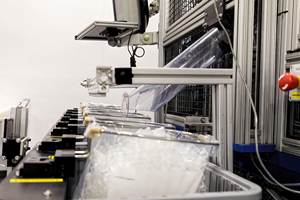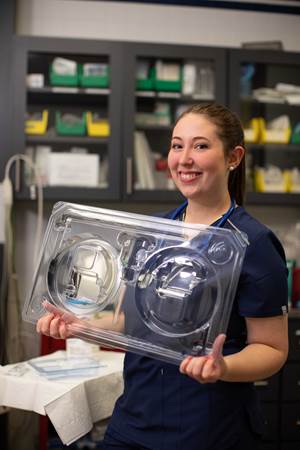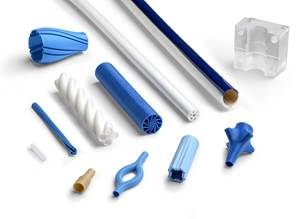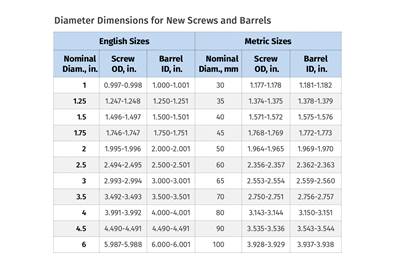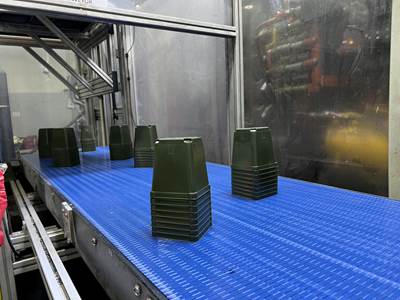Coronavirus Spurs Nonprofit Startup to Develop World's First Compostable N95 PLA Masks
THRIVE Masks aims to produce meltblown PLA masks in the U.S. through Kickstarter campaign.
As we approached the end of March, the first month for most of us across the country practicing social distancing and essentially finding ourselves living in quite a different world, PT and its Gardner Business Media trade manufacturing news ‘siblings’ have been reporting on how our industries are faring with several notable examples of how companies are stepping up to help in the Coronavirus battle.
One of those articles resulted in my being contacted by Dakota Bass, an engineer, inventor, and entrepreneur with years of experience designing and implementing manufacturing solutions for many of the world’s most successful products. His message: “Would you be interested in reporting on our mask startup which is looking to swap meltblown PP respirator filters to meltblown compostable PLA?” Naturally, not only is this of interest right now but something I believe is certainly worth pursuing for the long run. Despite the recyclability advantages of PP products ranging from single-use food-related containers to automotive components, N95 certified PP masks are hazardous once used and as such cannot be recycled. The compostability of PLA masks, with equal efficiency, durability and certification is a big plus to consider.
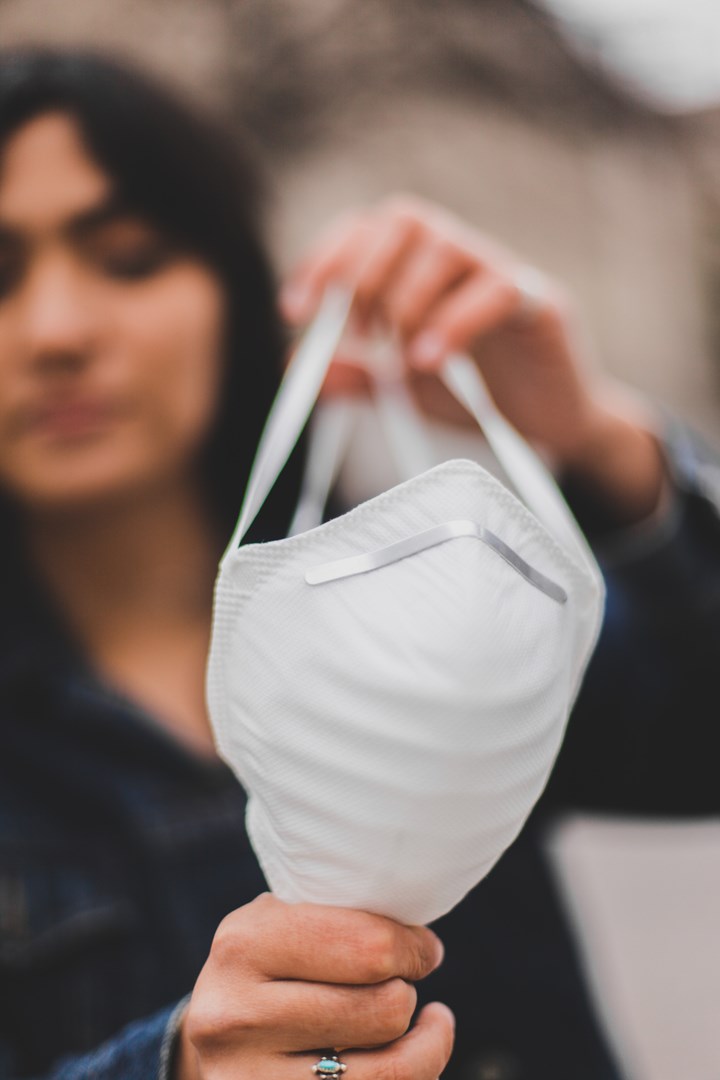
Bass tells me that he and his San Francisco Bay area team of supply base engineers Matthew Moore and Emily Blaker, with experience in high-volume manufacturing (e.g., Ford, SpaceX), are starting a nonprofit startup company, THRIVE Masks, to boost mask manufacturing in the U.S. “We don’t have enough mask-manufacturing capacity here in the United States. It’s scary in times like this to be reliant on other countries for medical equipment and supplies. I want to build a mask factory here so that we can protect our healthcare workers and citizens now, and be better prepared in the future if something like this happens again.”

Thus far, the company, has had success in working with two Chinese manufacturing partners outside of Shanghai that both produced meltblown PP N95 masks for the team, which the team has donated to hospitals, but more crucially, produced a number of mask models made out of meltblown PLA.
According to Bass, the THRIVE Masks are engineered for at least 95%* filtration efficiency against certain non-oil based particles, making them the perfect option to people from harmful airborne pathogens like bacteria and viruses. Different from other masks on the market, THRIVE masks are designed to maximize comfort and safety by utilizing four separate layers of electrostatically charged spun-bonded filter material, ultrasonic welded construction, and an innovative wiper seal for less leakage and easy fit. Bass noted that that THRIVE masks are equipped with 5-mil wide straps made out of PLA produced by a German company with which the team has contracted.
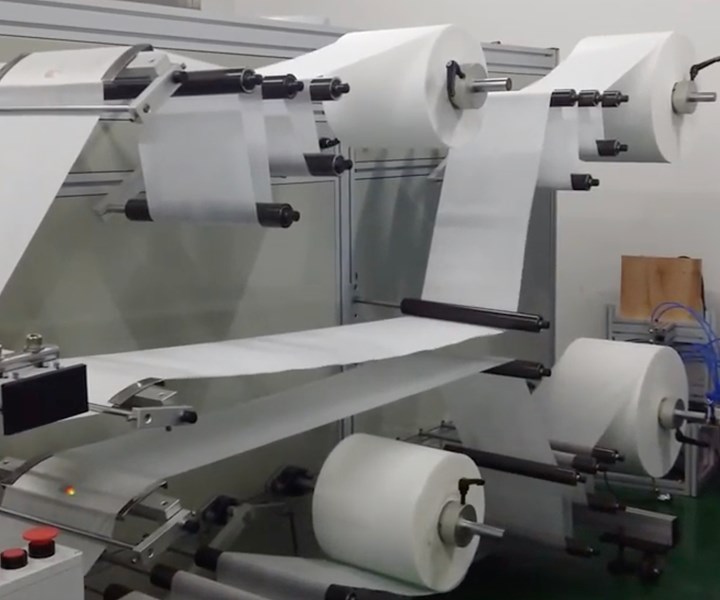
KYD Automation Fabric Feeder.
The team launched its Kickstarter Page on Monday, March 30 (https://www.kickstarter.com/projects/thrivemasks/thrive-masks-worlds-first-compostable-n95-type-respirator), to accept direct donations through gofundme for the manufacture of compostable PLA masks, which the THRIVE Masks team will fund through preorders. “If the Kickstarter campaign is a success, we will order the automated equipment. Our aspiration is that we could start production of the masks in 90 days,” says Bass. He noted that NIOSH N95 certifications which they are aiming to complete, will be forthcoming once production commences. The company is also accepting donations if N95 PP masks for direct donation to healthworkers.
Related Content
Artificial Intelligence Enables Smarter Sourcing
Westfall Technik has adopted Arkestro’s predictive procurement software to wring savings and more reliable deliveries from a historically challenging supply chain.
Read MoreAs Currier Grows in Medical Consumables, Blow Molding Is Its ‘Foot in the Door’
Currier Plastics has added substantial capacity recently in both injection and blow molding for medical/pharmaceutical products, including several machines to occupy a new, large clean room.
Read MoreCollaboration will bring Recycled Plastic to Medical Device Packaging
Agreement between Eastman and Ethicon will put copolyester derived from recycled materials in sterile barrier applications.
Read MoreDuPont Buys Medical Product Manufacturer Spectrum Plastics
Purchase price of $1.75 billion for leading supplier of extruded, molded, and 3D printed medical components.
Read MoreRead Next
Troubleshooting Screw and Barrel Wear in Extrusion
Extruder screws and barrels will wear over time. If you are seeing a reduction in specific rate and higher discharge temperatures, wear is the likely culprit.
Read MoreProcessor Turns to AI to Help Keep Machines Humming
At captive processor McConkey, a new generation of artificial intelligence models, highlighted by ChatGPT, is helping it wade through the shortage of skilled labor and keep its production lines churning out good parts.
Read MoreHow Polymer Melts in Single-Screw Extruders
Understanding how polymer melts in a single-screw extruder could help you optimize your screw design to eliminate defect-causing solid polymer fragments.
Read More







.png;maxWidth=300;quality=90)












